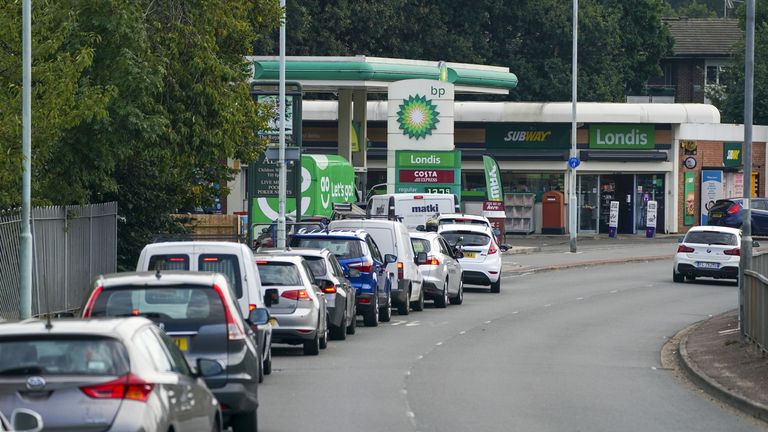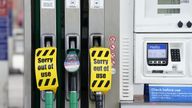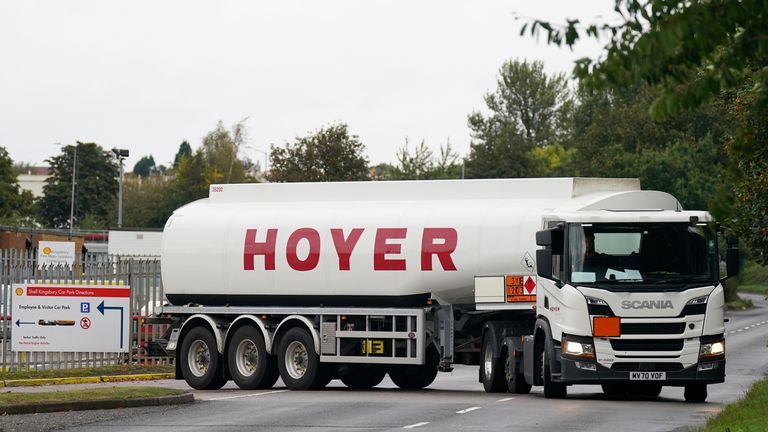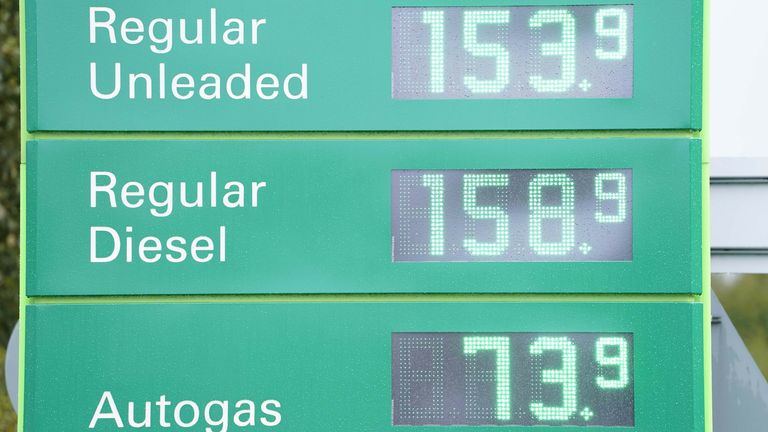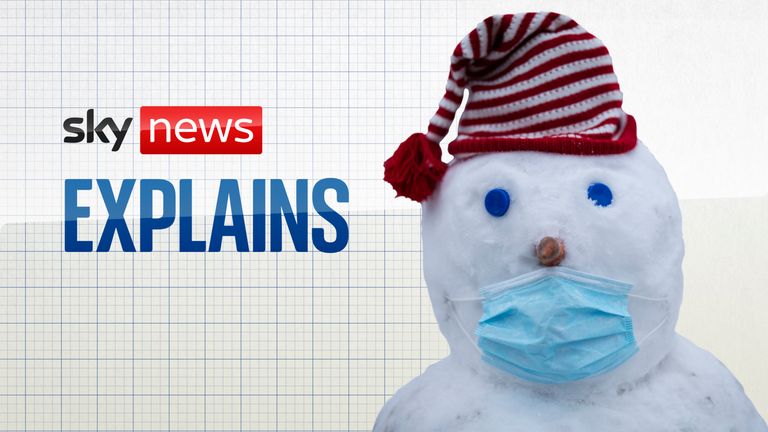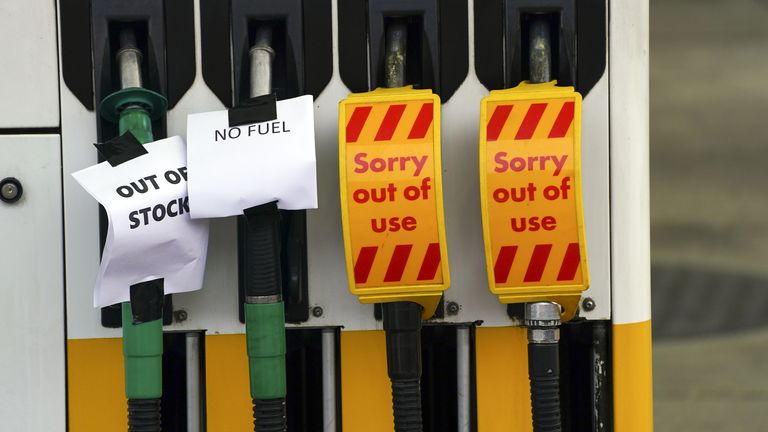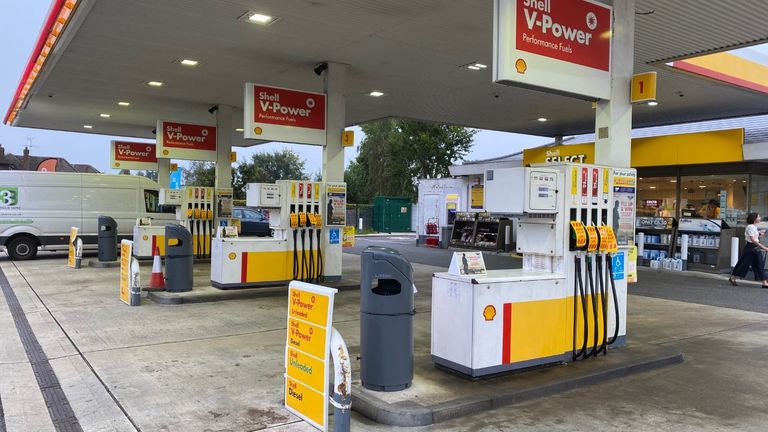‘No plans to bring in army to do driving’ as minister urges people to stop ‘panic buying’
There are no plans to bring in the army to drive lorries to deliver fuel to petrol stations, a government minister has said, as some brands report as many as 90% of their sites running dry.
The comments by environment secretary George Eustice came amid newspaper reports that the government was considering using the army to help with fuel deliveries.
“We’ve no plans at the moment to bring in the army to actually do driving,” Mr Eustice said.
He added: “But we always have a Civil Contingencies section within the Army on standby – but we’re not jumping to that necessarily at the moment.”
He reiterated the government’s message to drivers to stop “panic-buying”.
“The most important thing is that people buy petrol as they normally would. There isn’t a shortage. There have been some shortages of HGV drivers getting petrol to forecourts but actually that is quite limited,” he said.
Get in touch: If you’re struggling to get fuel we want to hear from you. Send us a photo of queues or closed petrol stations if you can do so legally and safely, along with details of how it’s affecting you, your name and location.
Email [email protected] with the subject line ‘blog’ and we could feature your story.
Steve Barclay, the chancellor of the Duchy of Lancaster, will hold a ministerial meeting on the fuel crisis on Monday.
A spokesperson for Number 10 again insisted that the UK has “ample” fuel stocks, despite days of panic buying.
The British Medical Association said there is a “real risk” healthcare staff won’t be able to get to work and should be given priority access to fuel, while campaign group EveryDoctor said some medics have already reported they have not got enough.
Dr Chaand Nagpaul, BMA council chair said: “Everyone will have their own reasons for needing to fill up, but as pumps run dry there is a real risk that NHS staff won’t be able to do their jobs, and provide vital services and care to people who urgently need it.
Meanwhile, the RAC said it was a “pretty bleak picture” when it came to pump prices, with the price of unleaded already going up a penny since Friday.
RAC fuel spokesman Simon Williams said: “With the cost of oil rising and now near a three-year high, wholesale prices are being forced up which means retailers are paying more than they were just a few days ago for the same amount of fuel.
“We might yet see higher forecourt prices in the coming days, irrespective of the current supply problems. We are also aware of a small number of retailers taking advantage of the current delivery situation by hiking prices.”
The current UK average is 136.69p for petrol and 138.58p for diesel.
One petrol station reported a 500% spike in demand compared to last week, with motorway service stations being given refill priority.
The industry has warned that even the army’s involvement would not end shortages on the forecourt.
Brian Madderson from the Petrol Retailers Association said the problem was caused by somebody leaking a confidential BP submission to a cabinet meeting ten days ago.
He continued: “We had problems of HGV shortages of drivers getting fuel tankers to the forecourts, but it wasn’t a critical situation at that stage.”
Downing Street announced on Sunday it was temporarily suspending competition laws to allow the fuel industry to target petrol stations most in need of fresh supplies.
Gordon Balmer, executive director of the PRA, said as many as 40,000 HGV driver applications are waiting to be processed in Swansea, he added.
Business Secretary Kwasi Kwarteng met industry executives on Sunday to try to find a way through supply chain pressures that have led to panic-buying of fuel.
In a statement, he said: “While there has always been and continues to be plenty of fuel at refineries and terminals, we are aware that there have been some issues with supply chains.
“This is why we will enact the Downstream Oil Protocol to ensure industry can share vital information and work together more effectively to ensure disruption is minimised.”
On Sunday, BP said: “We are experiencing fuel supply issues at some of our retail sites in the UK. This is being caused by delays in our supply chain due to a shortage of qualified drivers – this issue is impacting industries across the UK.”
Subscribe to the Daily podcast on Apple Podcasts, Google Podcasts, Spotify, Spreaker
The government will be hoping the new measures help ease the pressures brought on by a HGV driver shortage, which has seen supermarkets struggle to fill their shelves and petrol stations overrun by motorists.
On Saturday night, the government revealed it would offer short-term visas for foreign hauliers to come to the UK and help plug the gap.
However, Olaf Scholz, who said he had won a mandate to form Germany’s next government, said: “The free movement of labour is part of the EU and we worked very hard to convince the British not to leave the Union.
“They decided different, and I hope that they will manage the problems coming from that.”
Thousands more drivers will be trained up too, with the government fast-tracking those who want to get out onto the roads as soon as possible.
However, the move has been widely criticised by the industry.
Andrew Opie, director of food and sustainability at the British Retail Consortium, said the measures “will do little to alleviate the current shortfall”.
“Supermarkets alone have estimated they need at least 15,000 HGV drivers for their businesses to be able to operate at full capacity ahead of Christmas and avoid disruption or availability issues.”
